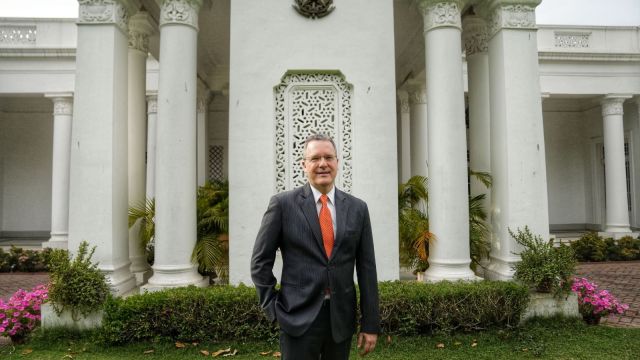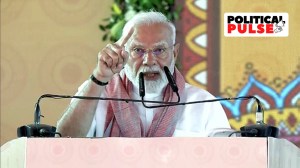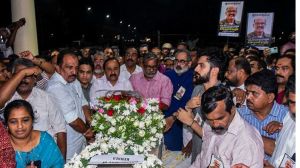‘Delhi offers the richest experiences in terms of culture and cuisine’: Brazil Ambassador
He has been living in Delhi for nearly two years now and the city has gradually grown on him

Delhi and Rio De Janeiro may be thousands of kilometres apart but for Kenneth Felix Haczynski da Nóbrega, Ambassador of Brazil to India, some similarities in the two cities remind him of his homeland. He has been living in Delhi for nearly two years now and the city has gradually grown on him.
Throughout his diplomatic career, Ambassador Haczynski da Nóbrega has held several key positions at the Ministry of Foreign Affairs, including Secretary of State for Europe, Middle East, and Africa; Director of Interregional Mechanisms, BRICS and IBSA sous-sherpa; and Trade Policy Advisor to the Foreign Minister’s office, among others.
Fluent in Portuguese, English, French, Spanish, Polish, and German, his diplomatic assignments abroad have been to the Embassy of Brazil in Washington (2015-2016) as the Minister Counselor; the Embassy of Brazil in Berlin (2006-2008) as the Head of the Economic Section; the Permanent Delegation to the World Trade Organization (WTO) and Economic Organizations in Geneva (1998-1999) as the Brazilian delegate for services negotiations; and the Embassy of Brazil in Lima (1995-1998) as the Head of the Consular Section.
He speaks to The Indian Express as part of a series of interviews with Ambassadors about Delhi — their home.
Excerpts:
One place in the city that you like visiting often.
I like visiting the National Museum very much because I admire the culture and the civilization — one of the reasons why I’m attracted to India. I also like to go to Lodhi Garden and Humayun’s Tomb because they are close to the embassy and I can go there even by foot. I also enjoy going to cafes in Connaught Place.
What has stood out in Delhi during your stay?
One of the reasons that I came here is because I think Delhi is a place where Brazilian diplomacy has a lot of scope for our bilateral relations. Brazil and India have coordinated a lot at the United Nations, the World Health Organisation (WHO), in the World Trade Organisation (WTO) — also because we are global south countries, always looking for an international scenario where international relations are more democratic.
One thing that I noticed is that several Brazilian diplomats, throughout their careers, form deep bonds with Indian diplomats. So basically, even in my day-to-day work, I would coordinate with my Indian colleagues because then we developed common proposals.
How do you deal with pollution?
I use air purifiers, and I take anti-allergic medicines, especially something for the eyes. But if you have good air purifiers and of course inside the car also, it’s manageable. Regarding the heat, I’m from Rio, so that is not an issue for me. For us, it’s normal, because in Rio, during summers, the temperature goes up to 42-43 degrees Celsius.
What about the traffic? How do you deal with that?
You have to plan when you have to go out. When I am stuck in traffic and I have a driver, I work inside the car. I listen to podcasts… I call people. You need to use your time.
Memories or encounters in India that you’ll never forget?
Well, I think one is certainly the Diwali in November 2023. It was the first time I went to Varanasi in Uttar Pradesh, and then we sailed down the Ganges for 30-40 minutes. We saw all the ghats and the prayer ceremonies, people holding candles, and then the places of the rituals. Then there was some kind of Bollywood show. That was impressive. You’ll never find something like this in Brazil.
Favourite food in the city and any places that you visit often?
I like the Indian Accent restaurant very much, and ITC Maurya Bukhara. One thing that has stood out for me is that in these restaurants, I always ask for the food to be less spicy. I love the taste of Indian food but it’s often too spicy for me. I like biryani, butter chicken, and Dal Makhni. And of course, the samosa. You also get it in Brazil surprisingly. It became famous. Brazil is not a place with a large Indian diaspora yet everyone knows of the samosa there.
What is the one thing that you’ll miss the most about the city once you’re gone?
I’m from a country that does not have a long history. Cultural heritage is one thing that I will miss from Delhi. As I said, I love to go to museums. In Brazil’s museums, we have artifacts but they’re mostly from abroad. We are not an old civilization. So I will miss this.
Also, I will miss the people here. They’re a little bit like Brazil…it’s easy to approach them. To start a conversation you know. It’s not difficult and this is good for a Brazilian because we are a little bit like that and in other countries, it can be more difficult. This kind of naturally easy-going conversation I’ll miss a lot.
Are there any other similarities that you’ve noticed in the people of Brazil and India?
I think one similarity is that family is extremely important in both Brazil and India. Brazilians like to stay with their families. And this is something we notice here also. This helps build the connection. There’s also another similarity. I think Indians and Brazilians both like to party.
How is Delhi different from the other cities that you visited?
Delhi is very cosmopolitan and immersed in greenery. And this is also something you find in Rio. If you walk on the streets of Rio, there are plenty of trees. Delhi, I would say is a cosmopolitan city, a global city. Its architecture also stands out. I don’t find this blend in other cities in India or abroad.
If you had to introduce Delhi to someone back home, how would you do it?
I think I would tell everyone to be prepared to have an intense experience. People are very sociable… lots of colours for Brazilians. So be prepared to have an impactful stay. You find things here that you don’t certainly find in Brazil. Everything together, it’s one of the most rich experiences in terms of culture and cuisine.
Must Read
Buzzing Now


Apr 24: Latest News
- 01
- 02
- 03
- 04
- 05























